Past Fellows
2023 Bruce McEwen Fellows
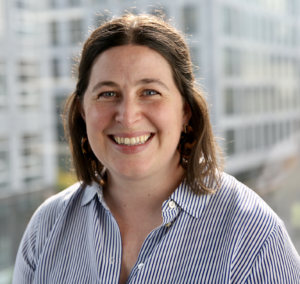
Dr. Kane is the Ling/Obrzut Assistant Professor at the Institute for Systems Biology, where her lab studies the biological determinants of frailty in both sexes. The Bruce McEwen Fellowship will support a new collaboration with the Bartolomucci lab at the University of Minnesota to learn practical skills in the assessment of social stress and social interactions in mice. This knowledge will be applied to ongoing longitudinal aging mouse studies in her lab, in order to explore the association between other functional measures of aging and social aging, and also to identify molecular factors associated with the social frailty index.
2022 Bruce McEwen Fellows
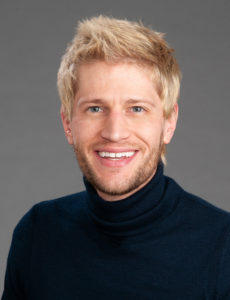
Dr. Negrey examines the relationship between social and physical aging in wild chimpanzees. Using camera-trap data from a field study of chimpanzees in Uganda, Ngogo Chimpanzee Project, he will quantify gait speed to investigate age-related changes in physical mobility, including how it relates to age-related shifts in social participation and physiological biomarkers of health.
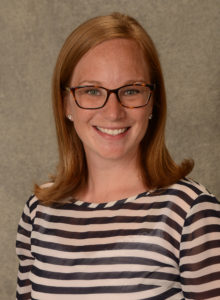
Dr. Paulsen studies the developmental origins of obesity. As a McEwen Fellow, Dr. Paulsen will use an experimental mouse model to examine developmental changes to offspring mitochondrial bioenergetic efficiency following exposure to maternal obesity.
2021 Bruce McEwen Fellows
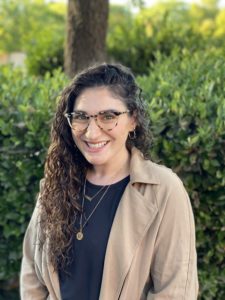
Sarah Carp is interested in studying the intersection of social behavior and aging in both healthy and disease states. As a postdoc in the Bliss-Moreau Lab she will be using a nonhuman primate model of early neuropathology related to Alzheimer’s disease in order to examine social consequences of amyloid beta oligomers as well as potential protective effects of social interaction on induced neuropathological changes.
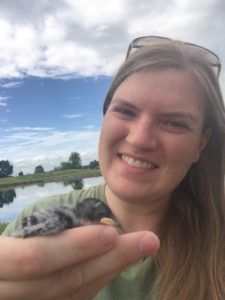
Sarah Wolf studies resilience to aging through the lens of telomere dynamics in a wild songbird. As a Bruce McEwen fellow, Sarah will be using a long-term dataset on tree swallows to investigate how social aggression influences telomere length, and vice versa. In exploring these bidirectional links over a lifetime, she will assess how variation and plasticity in social behavior may promote or prevent aging.
2021 Travel Award Recipients
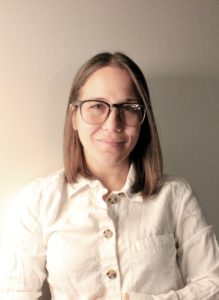
Raisa Hernandez Pacheco’s project focuses on developing continuously structured population models to describe and quantify the prevalence of stability, deterioration, and recovery from disabilities among socially advantaged and disadvantaged subgroups. For this, Raisa will use the Cayo Santiago rhesus macaques as a primate model system to study individual health within social contexts.
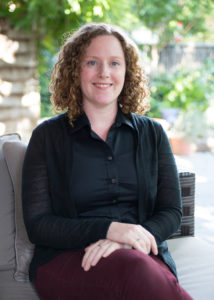
Neuropsychiatric symptoms (i.e. depression, anxiety, apathy, agitation) are present in nearly all dementia patients, are distressing to caregivers, and can disrupt networks of social support. Little is known about age-related changes in the affective processes that underlie psychological functioning, both in healthy aging and dementia. Emily will study this in marmoset monkeys, who have a short lifespan and naturally develop dementia-like neuropathology. Emily will use this travel award to develop a collaboration with Dr. Eliza Bliss-Moreau, who is an affective neuroscientist with expertise in nonhuman primates. Emily’s project will develop methods to study changes in affective responding, via autonomic nervous system activity, in marmoset monkeys across the lifespan.
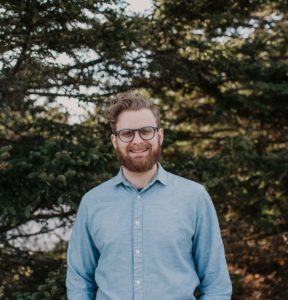
Quinn Webber is studying territorial behavior in North American red squirrels in collaboration with Dr. Andrew McAdam and the Kluane Red Squirrel Project. Red squirrels are typically thought of as an asocial species, but squirrels compete for food and territorial competition is an inherently social behavior that may be affected by senescence. Quinn will examine how the relationship between reproductive success and territoriality changes with age using a long-term dataset of red squirrel life-history and behavioral data. This work will inform our understanding of the evolution of senescence within a highly competitive social context.
2020 Bruce McEwen Fellows
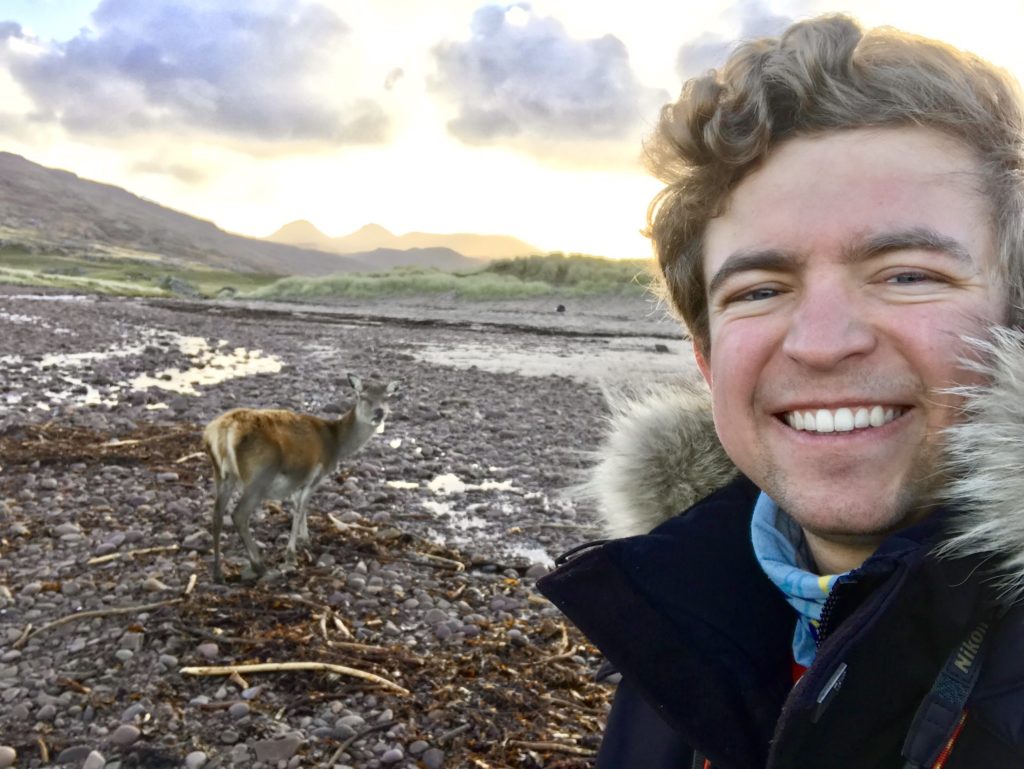
Greg Albery is investigating the epidemiological consequences of social ageing in a long-lived mammal. He will be using the long-term study of red deer on the Isle of Rum to investigate how natural helminth infection changes as individuals age and become less social. This research will answer whether age-related decreases in social behaviour could act to counteract age-related decreases in immunity.
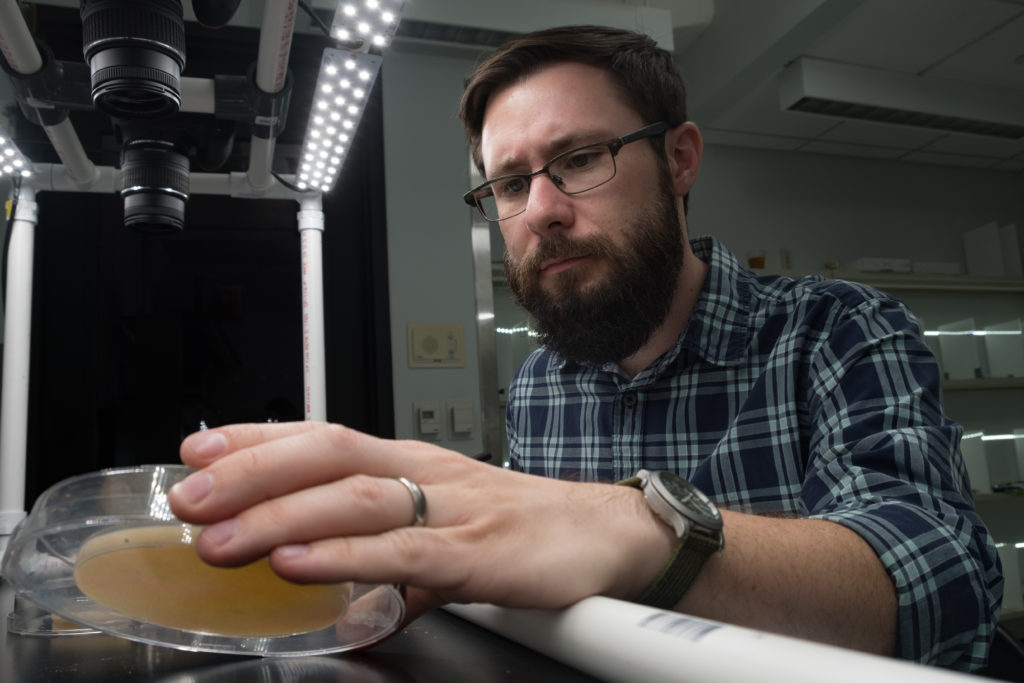
Nick Keiser studies behavioral disease ecology in a diversity of host-parasite systems. His proposed work will assess the interactions between individual and social determinants of infectious disease risk. Using the fruit fly Drosophila melanogaster and an entomopathogenic fungus, he will test the degree to which sex and age disparities in disease vary across host genotypes and explain group-level differences in outbreak dynamics. He uses replicated social groups of individually-marked flies of known genotypes to link infection dynamics to individuals’ behavioral traits and factors of their social environments.
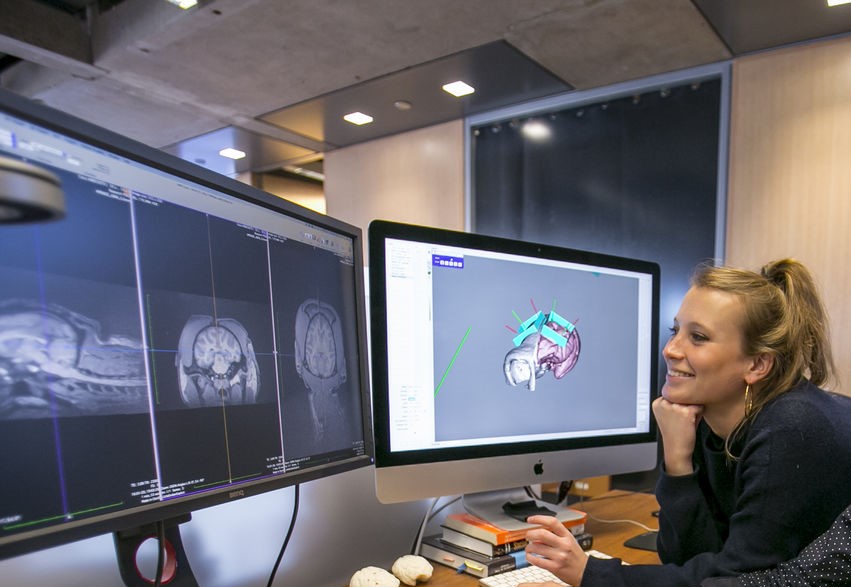
As a Bruce McEwen fellow, Camille will investigate whether social support can protect the brain from stress-induced neurological changes in a population of rhesus macaques who survived a devastating hurricane.

Nicole’s project aims to use the blue monkeys of the Kibale National Forest, Uganda as a model for human health inequalities that result from social exclusion. In collaboration with Michelle Brown, she will be evaluating whether immune dysregulation is a prominent pathway that inter-species competition and environmental stressors are hindering the health and growth of the Ngogo blue monkey population.
2020 Travel Award Recipients
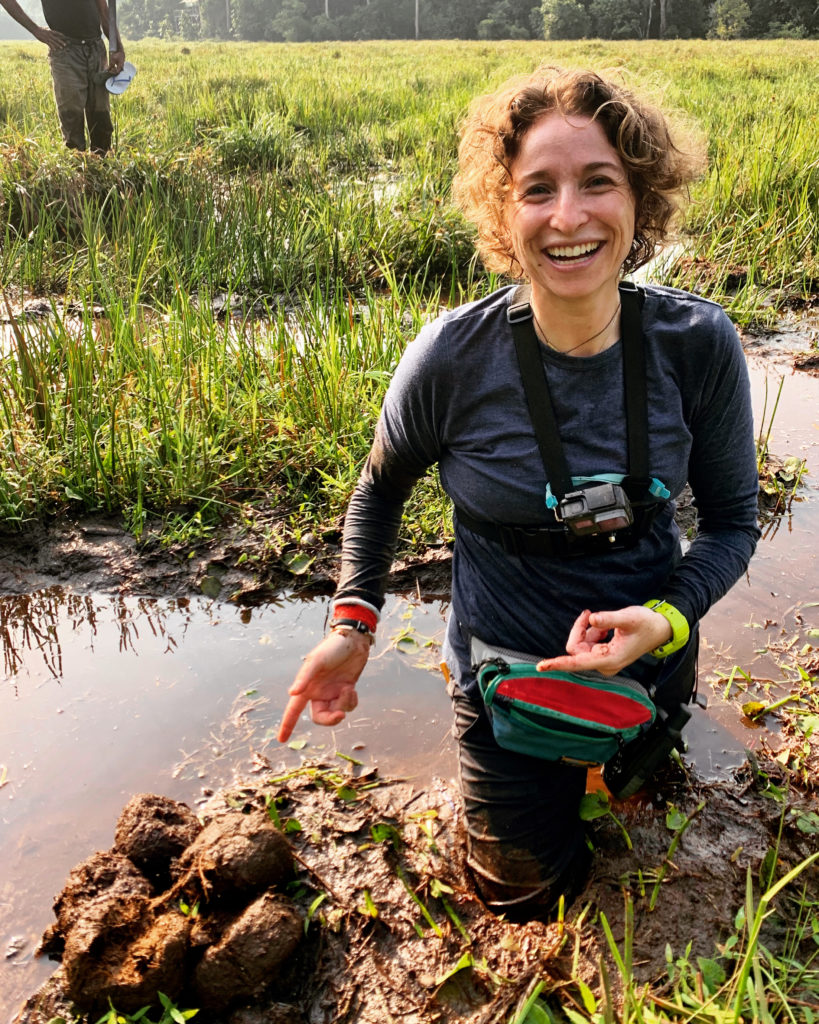
Daniella is studying how early life trauma in elephants relates to their health, behavior, and aging. To do so she is studying elephants that have experienced poaching to understand how those experiences may mediate the effects of ticks on disease severity. She hopes to leverage the similarities between humans and elephants and utilize these similarities in translational research where they may offer the potential to further human aging research.
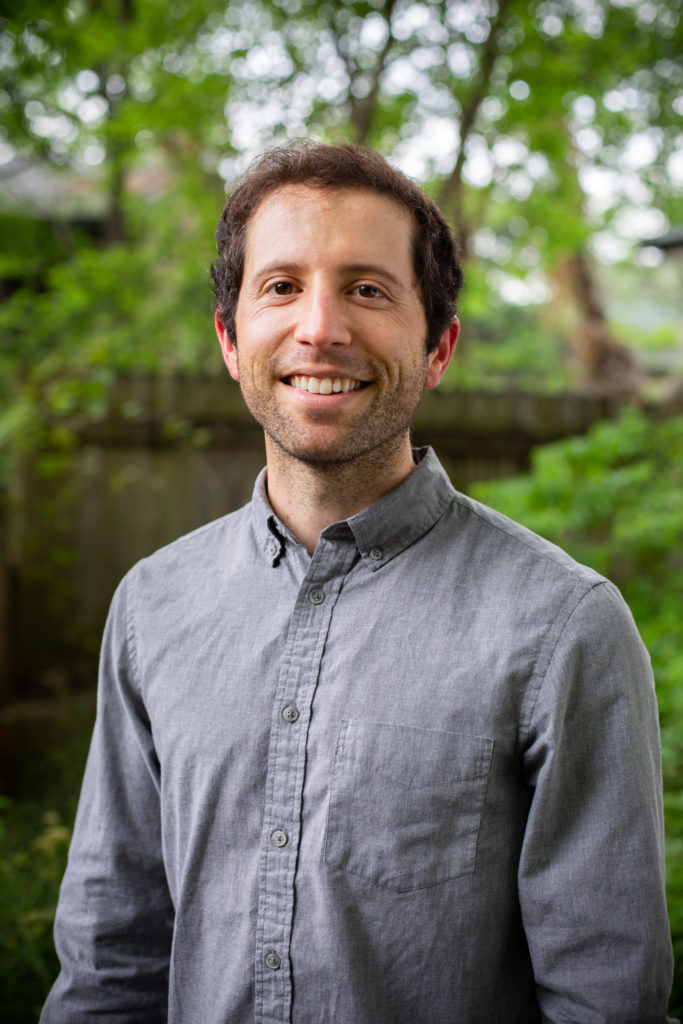
Recent research has found that gut microbiomes become destabilized in the elderly, possibly compromising the essential functions that they provide. Like humans, bumble bees are highly social animals that rely on gut microbes for nutrition and defense from pathogens and microbiome destabilization in bumble bees has been linked to aging. Tobin will use this fellowship to initiate a collaboration with Dr. James Crall, who has pioneered behavioral tracking in bumble bees, combining these methods with microbiome analyses, we aim to gain insights into the links between social behaviors, microbiome stability, and host health.
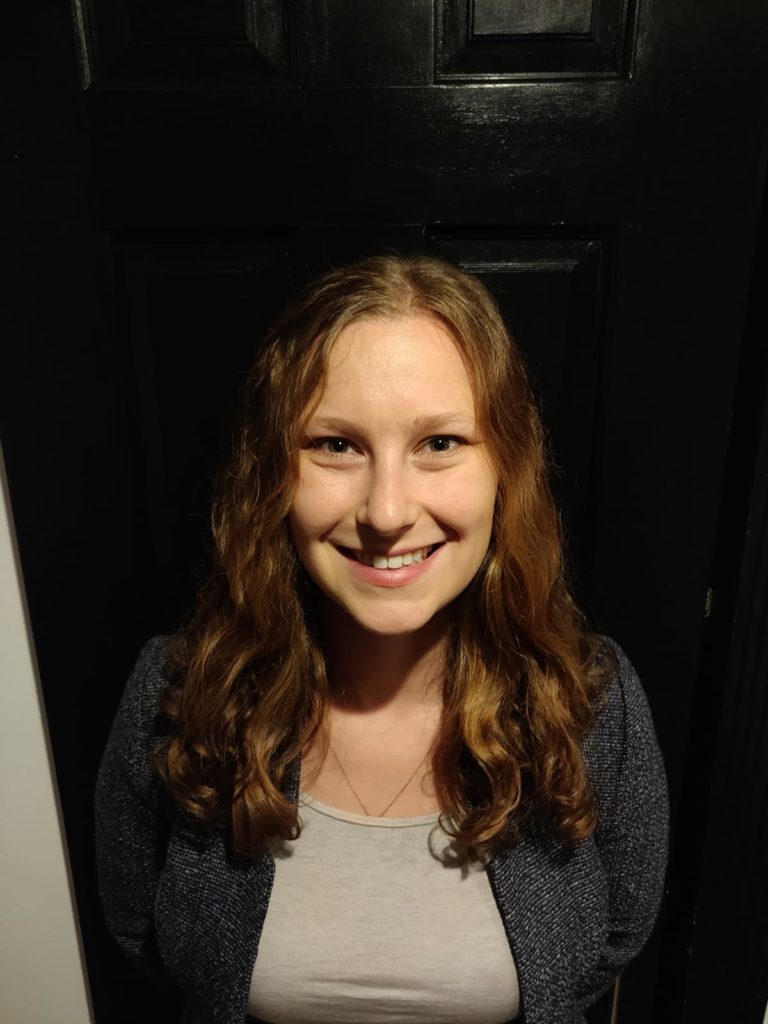
Laura’s project investigates the senescence associated secretory phenotype (SASP) which is thought to be a core component of the aging process. She will measure SASP expression in several tissues from rhesus macaques of different ages to see how SASP changes with age, and if social integration modulates age-related changes in SASP expression. Results from this study will clarify how social integration affects the molecular mechanisms involved in the aging process, and in turn influences aging phenotypes, and will help to inform our understanding of the aging process.